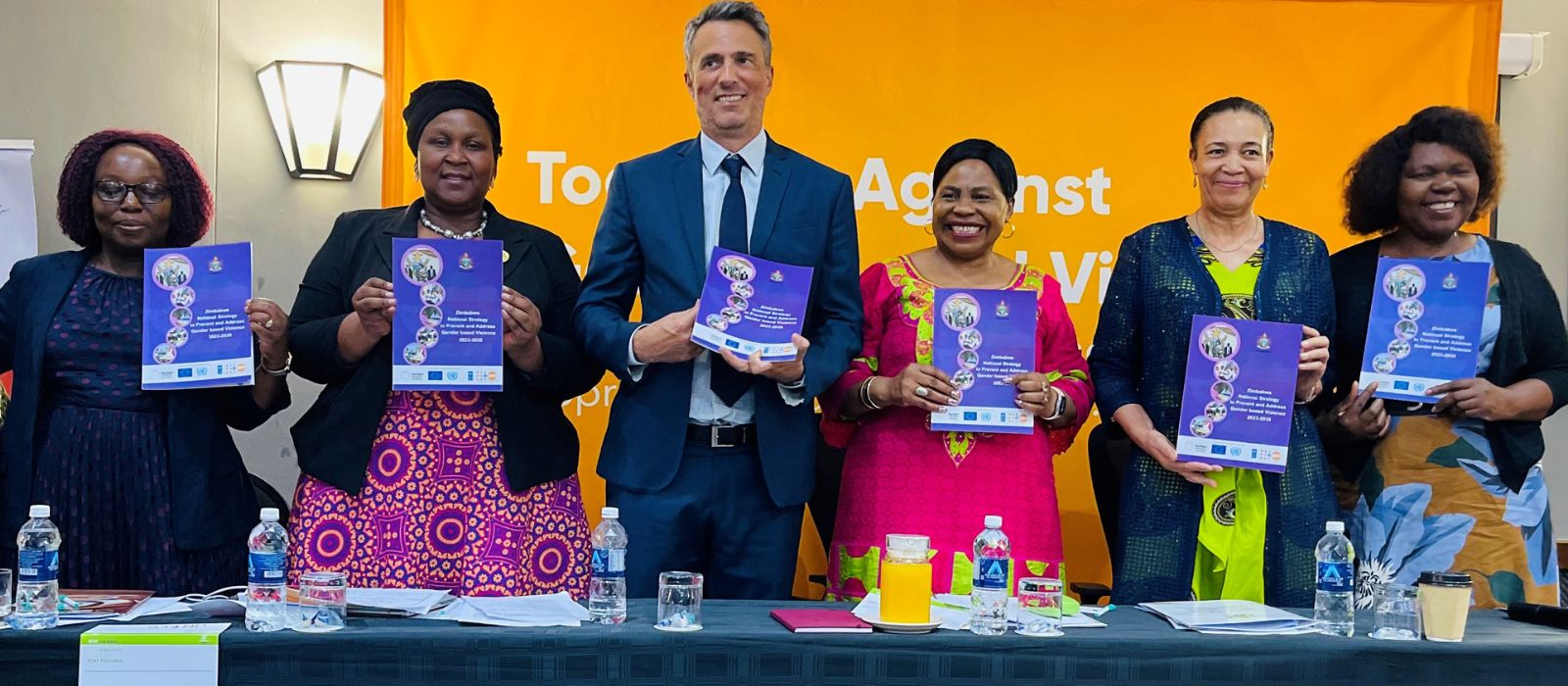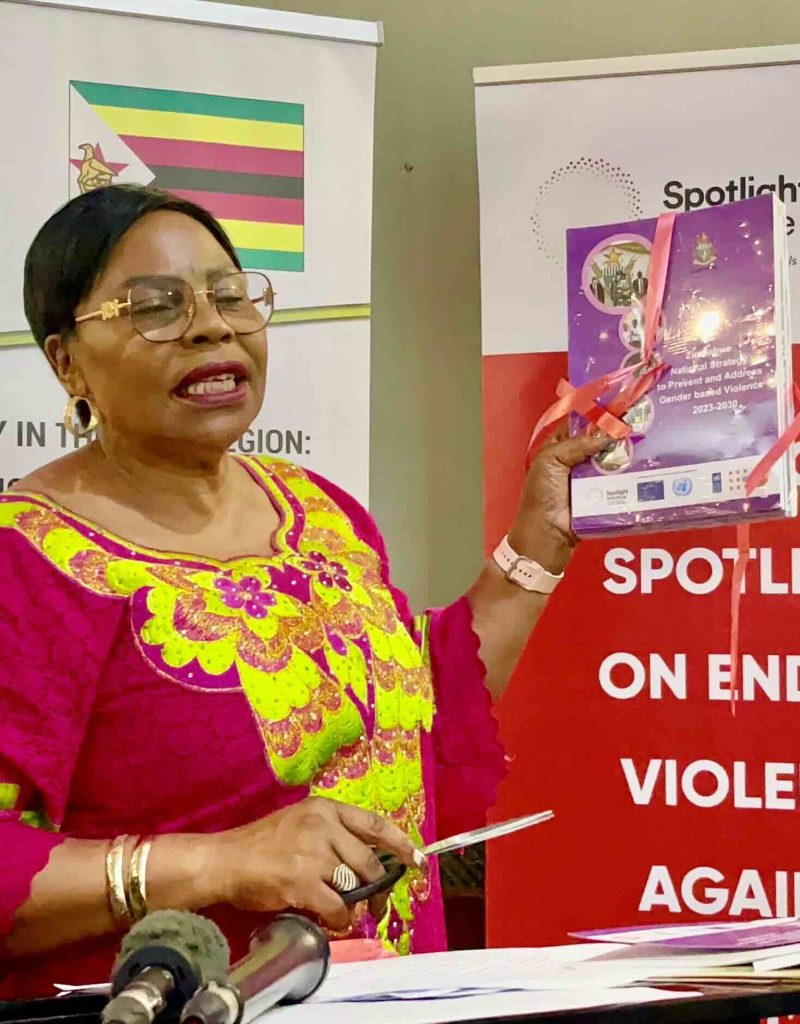
The Secretariat of the Southern African Development Community (SADC) has collaborated with the Ministry of Women Affairs, Community, Small and Medium Enterprises Development in the Republic of Zimbabwe to launch the National Strategy to prevent and address Gender-Based-Violence (GBV) covering the period 2023-2030.
The National Strategy provides a guiding framework for the national response to GBV, sets out priority areas for the country, and outlines specific actions and strategies for the government, and the whole of society in their efforts to prevent and respond to GBV in general, and violence against women and girls in particular. The strategy recognizes that GBV is a complex, pervasive and multi-faceted phenomenon that intersects with a broad range of social and gender variables and therefore requires a multi-sectoral and well-coordinated response.
Launching the Strategy, on 15th December 2023 in Harare Zimbabwe, the Minister of Women Affairs, Community, Small and Medium Enterprises Senator Monica Mutsvangwa highlighted that the process of developing the strategy was consultative and included physical reviews and validation meetings with support from SADC Secretariat, United Nations Development Programme (UNDP) and United Nations Population Fund (UNFPA) under the Spotlight Initiative. Senator Mutsvangwa said that the “Government has put in place legal and policy frameworks backed by institutional mechanisms that are working towards GBV prevention and response. Laws such as the Domestic Violence Act continue to work for the protection of all victims of domestic violence”.
She added that “the Government has also activated the institutional machinery through the establishment of a robust multi-sectoral gender mechanism, spearheaded by the Ministry of Women Affairs, Community Small and Medium Enterprises Development. Key institutions such as the Zimbabwe Gender Commission, Anti Domestic Violence Council and other institutions and structures promoting gender equality are critical and we shall strive to ensure that these institutions are adequately resourced and operationalized to serve their purpose”. [Source: sadc.int]



